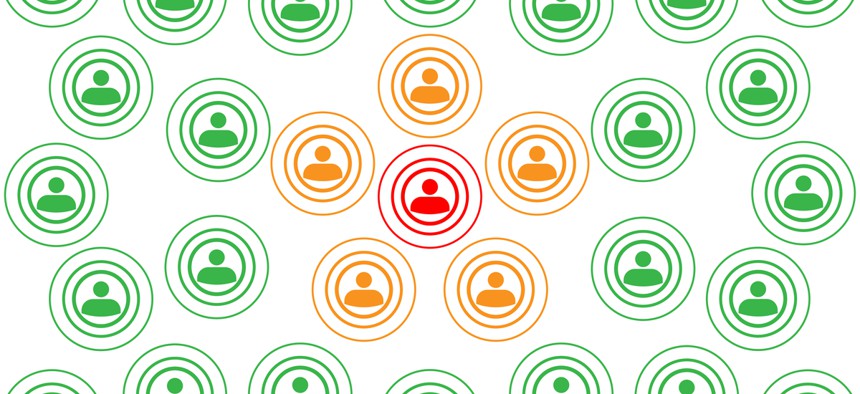NASA Prepares to Launch Internal COVID-19 Contact Tracing Program

LP2 Studio/Shutterstock.com
The agency is using the Salesforce platform to begin tracking potential infections and community transmissions on a voluntary basis.
As the COVID-19 pandemic continues its spread in the U.S., NASA is tapping commercial software to start an internal contact tracing program.
According to an information collection notice posted Tuesday in the Federal Register, the voluntary program “will be used to determine whether NASA personnel have been exposed to the COVID-19 virus and to track and trace their interactions across the NASA community for identifying possible points of exposure.”
Once the program is stood up, NASA plans to designate a health care-focused employee to act as the NASA Contact Tracer to lead the effort.
When a NASA employee or contractor agrees to sign up for the program, the Contact Tracer will start by going through the privacy considerations so the employee understands their rights and how their personal information will be used, after which the employee “will be asked, orally, to confirm if they have symptoms or not,” by replying “yes” or “no.”
That information—along with the employee’s contact information and the names, phone numbers and email addresses of those they have been in close contact with—will be entered into the new tracking app.
“While participation is voluntary, it is strongly encouraged as failure to provide the requested information may result in potential increased exposure of personnel to the virus,” the notice states.
The “newly developed tracking and tracing digital application” was built on NASA’s Salesforce platform. Salesforce’s workforce management platform has been used by a variety of organizations to start internal contact tracing programs, including some 35 state governments, according to company CEO Marc Benioff.
Interested parties have until October 4 to submit comments.
Specifically, under the Federal Register notice, the agency wants feedback on “whether the proposed collection of information is necessary for the proper performance of the functions of NASA, including whether the information collected has practical utility;” “ways to enhance the quality, utility and clarity of the information to be collected;” and “ways to minimize the burden of the collection of information on respondents, including automated collection techniques or the use of other forms of information technology.”
NEXT STORY: Six Months into VA's 5G-Enabled Hospital Project






